6. Stephen Norrington
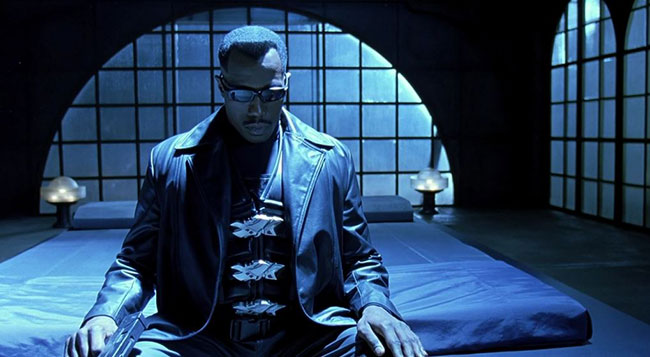
Christened into the film industry as a special effects tradesman, the British-born Stephen Norrington made his move to directing with the cheap and grimy yet enjoyable ‘robot gone homicidal’ horror “Death Machine” (1994).
Still, it took his second movie to really kick in the door, with his ultra-hip and gory kung-fu spectacle “Blade” (1998), which confirmed Wesley Snipes (briefly) to superstardom, and was the first genuine pop culture hit from Marvel’s comic book stable. Although with Norrington’s take-no-prisoners R-rated aesthetic, it was closer to the gory spectacle of “Total Recall” than the family-friendly spectacle of “The Avengers”.
Afterward, Norrington’s name flamed with heat as several prestige projects were thrown his way, yet he turned them all down in order to create his highly personal, off-kilter industry satire “The Last Minute” (2001). His trademark style and vibe were intact even if his thematics were muddled – it was a flawed but fascinating movie that hinted at a major talent slowly molding into something interesting, yet the film sadly came and went without any recognition.
Norrington had financed most of the film out of his own pocket, and was put into a difficult situation, taking the nearest money job with “The League of Extraordinary Gentlemen” (2003), another comic book adaptation that seemed like a surefire hit, yet one that was turned into a disaster of epic proportions.
Norrington’s vision was drowned by studio notes and filming was a constant battle between him and star Sean Connery, resulting in an experience so grating and soul-crushing that not only did Norrington put a fork in his filmmaking career and retire, but so did longtime stalwart Connery.
Norrington has hinted once or twice over the years about coming back for a project, but it’s never come into fruition. It’s a grand shame since, apart from his final film, all of his movies hint at an incredibly distinct visual mind, with an intriguing personal touch. He’s a filmmaker with a voice that was just starting to head into fascinating territory, yet due to the abomination of his last movie, we will only have his earlier films to decipher and enjoy, and can only imagine what could’ve been.
7. George Armitage
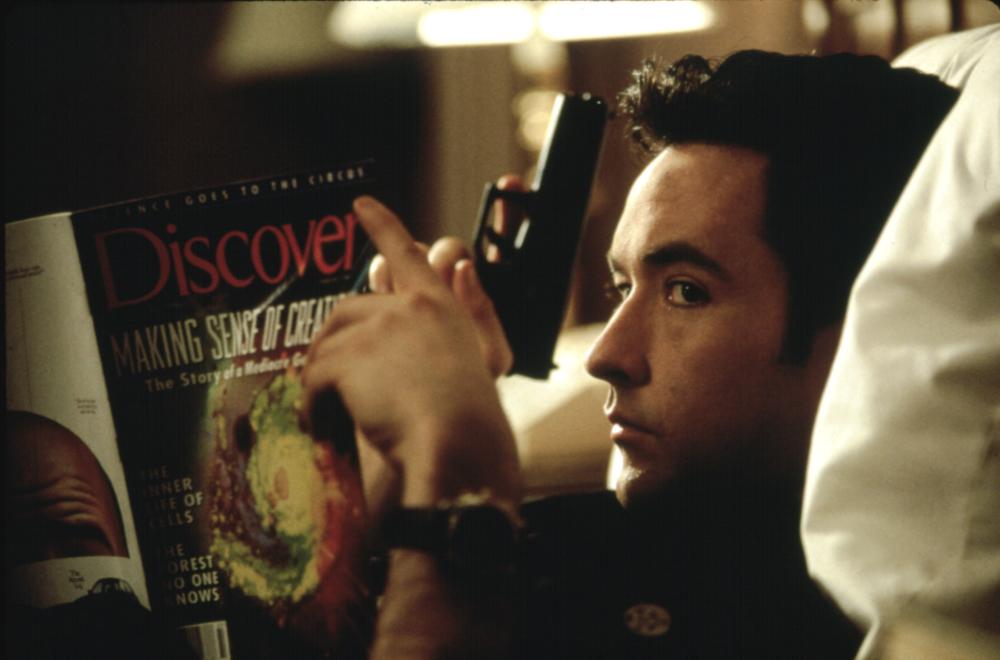
Yet another graduate of Roger Corman’s crash-course in filmmaking, George Armitage started off directing exploitation cheapies for the schlock specialist, like the sleazy “Private Duty Nurses” (1971) and goofy ‘Get Carter’ blaxploitation remake “Hit Man” (1972), starring a gruff Bernie Casey with a penchant for feeding Pam Grier to zoo animals.
Yet a true passion for filmmaking crept through with the gritty action of “Vigilante Force” (1976), a Kris Kristofferson B-pic with an interesting Civil War analogy at its heart, and an fistful of insane stunt work. He quickly followed it with the TV film “Hot Rod” (1979), a deeply personal and impressively authentic love letter to the drag racing scene of 60’s Los Angeles.
Then, unlike his fellow Corman partners-in-crime Jonathan Kaplan and Jonathan Demme, who rose to award-winning respectability in the 80s, Armitage went into hibernation for over a decade.
Eventually, he was coaxed back by Demme with the adaptation of Charles Whitford’s “Miami Blues” (1990) – a pitch-perfect crime comedy with an excellent handle on its jet black humor and career-best performances from a gloriously sinister Alec Baldwin, and his hilarious nemesis Fred Ward. Sadly, the film isn’t as championed as it deserves to be, even in cult circles, but Armitage’s next project – “Grosse Pointe Blank” (1997) – happily exploded on that specific scene. “Blank” is a glorious mashup of a 90’s hitman movie and an 80’s John Hughes homage, with John Cusack never cooler as the likeable assassin.
With Armitage’s career finally building some pedigree amongst the critics, he tackled another championed pulp author, Elmore Leonard, with “The Big Bounce” (2004), but the results were undercooked and average, which was surprising since the director and the material seemed like a surefire match. However, a troubled post-production had the producers cutting the R-rated nature of Leonard’s work down to a PG-13 – effectively snipping its nuts and its appeal.
Armitage was soured by the experience and walked away from the movie-making scene with no inclination to return. It’s a shame how little respect and recognition his career receives – perhaps if he would’ve stuck it out for a handful of other projects, one could’ve hit pay dirt, but alas, it wasn’t meant to be.
8. Leonard Kastle
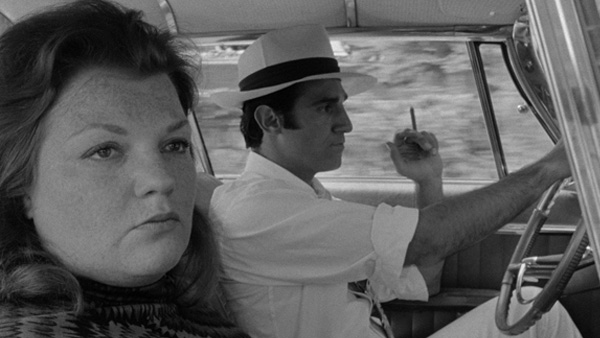
Cult milestone “The Honeymoon Killers” (1970) had a bizarre journey to completion, none more stranger than the involvement with its eventual director, the talented Leonard Kastle.
Kastle had his passion steeped in the opera world, working as a composer and director for that specific arena. His roommate was feature producer Warren Steibel, and in the midst of developing a feature about the infamous ‘Lonely Hearts Killers’ as a favor, he asked Kastle to research the subject, and eventually hired him to write the script, due to his low cost.
None other than a young and green Martin Scorsese was hired to direct, after having made his debut feature with the rough-edged “Who’s That Knocking At My Door?”(1967), yet the future film maestro was fired for working too slow. His replacement, Donald Volkman, a commercials director, was then fired after two weeks. Steibel had no other option but to turn to Kastle, who had lived and breathed the material through the prolonged scriptwriting process.
The final film resulted in a unique filmic experience – in turns horrific, romantic and humorous. All anchored by a set of incredible performances by Tony Lo Bianco and Shirley Stoler as the titular killers, both vile human beings yet empathetic through their love for each other. Kastle was strong and confident with his novice effort, balancing the breakneck tonal changes and injecting heart and inventiveness into proceedings.
Whilst the film was initially misunderstood, its reputation grew over the years, with even Francois Truffaut naming it his favorite American movie. Yet sadly Kastle could never get another feature going – he wrote several screenplays in different genres, but the money men were just interested in a ‘Honeymoon Killers 2’ and nothing else. Eventually fed up with proceedings, the man stuck with his number one career path and hasn’t looked back since – cinema’s loss was opera’s gain, I suppose.
9. Remy Belvaux, Andre Bonzel and Benoit Poelvoorde
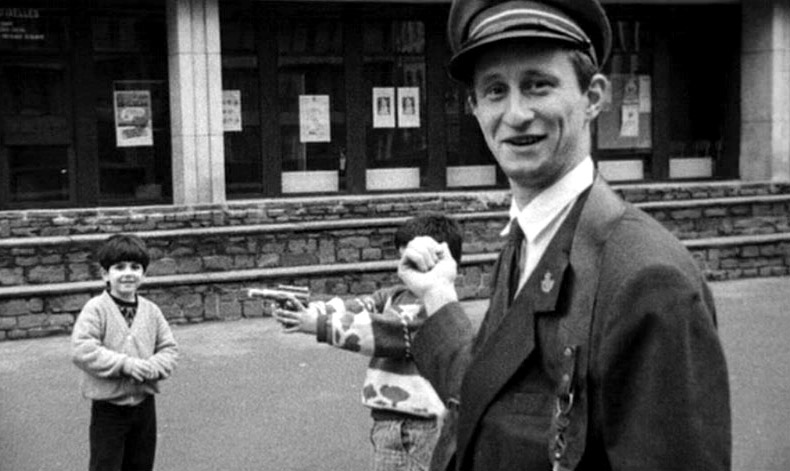
The trio of eccentric Belgian filmmakers collaborated on a handful of short films together before stepping into the feature film world with their gut punch of a mockumentary “Man Bites Dog” (1992), a subversive trip into blacker than black comedy.
Its premise aims for high-concept satire, as a documentary crew follows a serial killer and his daily exploits. However, proceedings sink into complex, disturbing territory as the crew becomes more implicit in his crimes, assisting him in his parade of rape and murder.
It was a vulgar and shocking commentary on the public’s fascination with violence, one that was equally nauseating, hilarious, and intelligent – a high bar for the tonal achievement that the trio pulled off without a hitch, resulting in a global ‘word-of-mouth’ cult sensation. Regardless of the critical success, the filmmakers never grouped together again, most likely because they were unable to conceive an equal to their first barnstorming cinematic ambush, thus the trio soon disbanded and went their separate ways.
Bonzel focused on becoming a frequent cinematographer in the international cinema world, completely stepping away from the director’s chair. Belvaux remained largely absent from the film scene, only landing in the media again in 1998 for being arrested for throwing a cream pie at Bill Gates; he took his own life in 2006 at age 39.
And Poelvoorde, who also played the vicious yet strangely likeable lead killer in the film, not surprisingly went on to have a solid career as flavorful character actor in French and Belgian productions.
10. Alan Parker
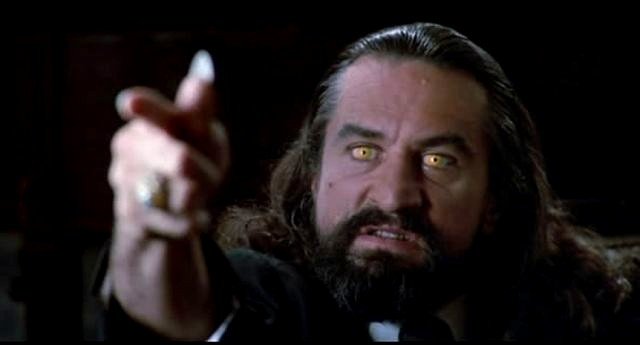
Alan Parker was part of a wave of young British filmmakers in the 80s who, after cutting their teeth with commercial and theatre work in their native homeland, found massive success in the states.
Parker might have even been the most respected due to his sudden rise to his status as an award-winning critical darling. His wonderful kids movie “Bugsy Malone” (1976) was a whimsical mix of musical and gangster genres that caught Hollywood’s attention, but it was his emotionally harrowing and Oscar-winning “Midnight Express” (1978) that truly catapulted him to the A-list.
He had a unique bag of tricks – able to conjure amazing performances from his cast, deliver a slick visual style, and work equally well in heightened fantasy or ‘kitchen sink’ realism.
The 80s were his peak period, as he swayed from tense drama thrills (“Birdy”, “Mississippi Burning”, “Angel Heart”) back to his rip-roaring handle on musicals (“Fame”, “Pink Floyd: The Wall”). Although things mellowed slightly in the 90s, he entered it with the pop culture smash and possibly his most fondly remembered film “The Commitments” (1991), a great blending of his alternative style, concerning the slapdash journey of a gang of working class Dubliners who start a soul band.
Yet, his films started losing their pedigree slightly with critics in the new decade; even after the massive hype surrounding “Evita” (1994), the film delivered below expectations. His last film “The Life of David Gale” (2003) was a critical failure despite great performances from Kevin Spacey and Kate Winslet, and Parker decided his run had come to an end and unofficially retired from the celluloid scene.
It’s been a philosophy that he’s adamantly stuck to, regardless of an unproduced dream project he’s written (he’s stated he’s now “too old” to direct it), or the truckload of cash offered to get him to direct a Harry Potter installment. Parker is sticking to his guns – and why the hell not? After a strong and versatile filmography, why not put up your feet and enjoy your autumn years?